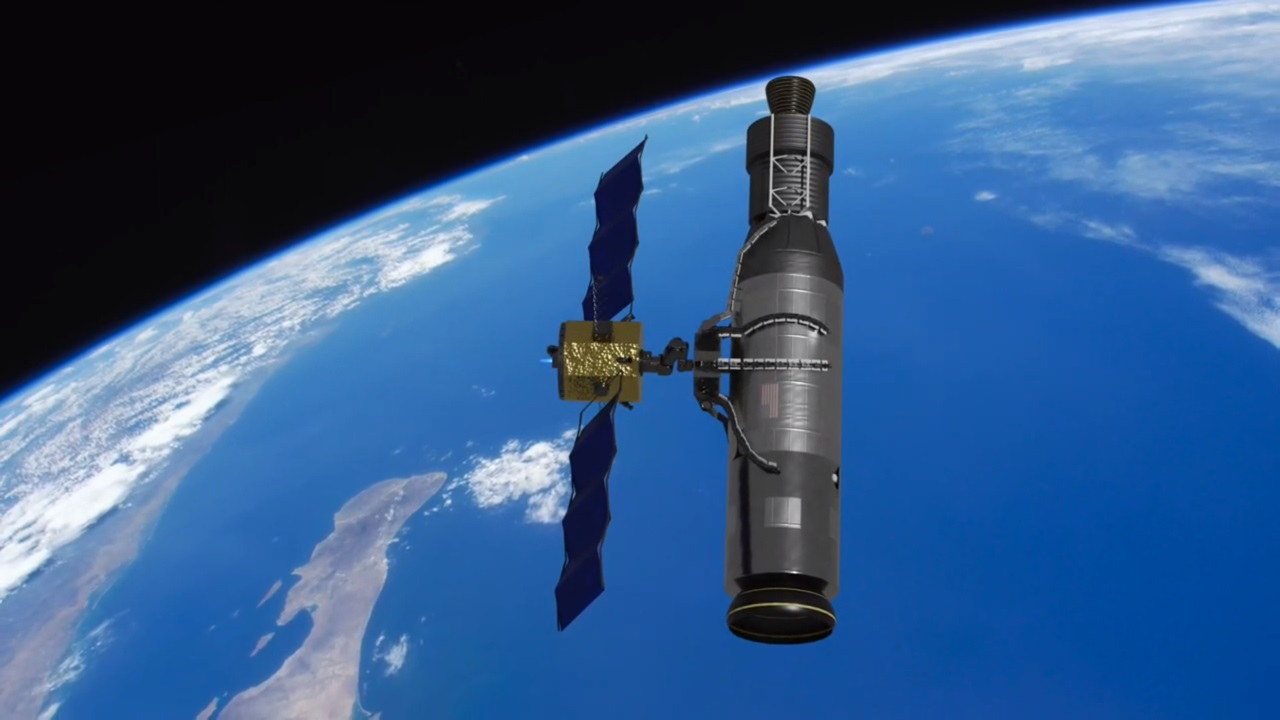Seraphim Space Accelerator launches Mission 10

Above:
Rob Desborough, Managing Partner at Seraphim Space and CEO of the Accelerator.
Courtesy Seraphim
The accelerator is a 13-week programme that supports SpaceTech companies from inception to IPO. The latest cohort from the team behind the world’s leading space fund, features nine startups, all of which are looking to develop key relationships with some of the world’s leading corporates and agencies operating in the space sector as they raise capital to commercialise their technology.

The accelerator’s 10th cohort spans four continents and is a testament to the global nature and success of the programme and a reflection of the wider space economy. The cohort members focus on areas including kinetic launch systems, orbital debris removal, modular technology for microsatellites, advanced material science and on-orbit testing and blockchain for the aerospace supply chain.
The cohort members are:
- Auriga (US): Developing a novel kinetic launch system utilising Hyperloop magnetic levitation technology to reach hypersonic speeds to launch at any time, cost effectively
- Teris Earth Intelligence (Canada): Developing a SaaS Earth Intelligence platform, creating 3D digital twins of anywhere on earth, on-demand to monitor critical infrastructure and assets and react to changes, new patterns or anomalies
- Rhea Space (US): Developed a cost-effective Space Situational Awareness solution for Geosynchronous Equatorial Orbit (GEO) and beyond to deliver tangible national security benefits (for the US and Five Eyes partners)
- Kall Morris (US): Developing an orbital debris removal spacecraft, ready to capture unprepared debris with a system capable of multiple collections of potentially lethal and previously untrackable objects
- Space Dots (UK): SpaceDOTS picosat enables on-orbit qualification of advanced materials and small components to test products in harsh and hard to reach environments
- 3IPK ( Slovakia): Using Blockchain technology to cost-effectively solve a variety of supply chain challenges prevalent in the aerospace industry
- Reorbit (UK/Finland): Transforming the notion of rigid and single-use satellites through its modular and configurable microsatellite platforms offering reusability and the accommodation of different types of payloads
- Nominal Systems (Australia): Developed digital twin technology that recreates the real-world in real-time to simulate operational satellites as a solution to test flight software, upskill teams and design complex systems collaboratively
- Elevation Space (Japan): Developing a platform to enable researchers and engineers to conduct in-space experiments and manufacture of advanced materials that will ultimately allow us to live in space
The Accelerator’s position at the epicentre of the New Space ecosystem continues to attract startup’s from all over the world. This is part of a global space success story, where start-ups are flourishing in spite of a tough economic climate. Future cohorts will be further enhanced through the expansion into the US via the US subsidiary, Generation Space LLC and following that, into Asia Pacific.
Earlier this year, Xona Space (Mission 5) raised $15m after having its first payload launched on the Transporter-5 rideshare mission of SpaceX which took place on 25th May. In June, Opteran (Mission 5), which re-engineers insect brain patterns to solve fundamental limitations of current state-of-the-art AI and introduce a third wave of AI: genuine brain biomimicry, secured $12 million.
Rob Desborough (above), Managing Partner at Seraphim Space and CEO of the Accelerator, said: "Mission 10 is a fantastic milestone for us and as such, we’re proud to have such a globally diverse cohort. The space sector has gone through considerable developments over the last five years and the startups that we’re welcoming as part of Mission 10, are a clear indicator of how quickly the industry is growing. These are some of the businesses that will help shape the next decade of the space economy.”
Mission 10 features multiple in-person investor pitch days across the UK and US in November, before culminating in an Investor Showcase on the 7th December. The accelerator will continue to be a mixture of remote and in-person events, with over 200 hours of dedicated programme time, including online sessions from experts and corporate partners, workshops and one-to-one mentoring sessions from SpaceTech professionals, advisors and investors.
The accelerator continues its relationship with key corporate parties and industry bodies, including the UK’s National Security Strategic Investment Fund (NSSIF), UKSA, ESA, Airbus, Cobham, Dentons, Dstl, Cyient and Satellite Applications Catapult, enabling the participating startups to engage with industry leaders and forge partnerships and contacts that have a real impact on their growth.











